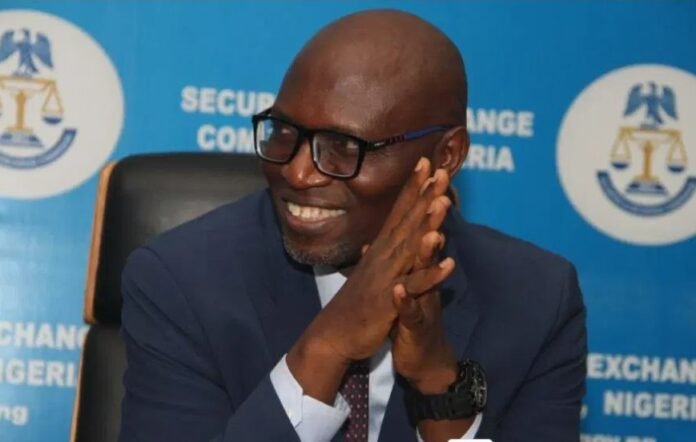The Securities and Exchange Commission (SEC) has revealed that Nigerians have lost about ₦316 billion to Ponzi schemes and illegal fund managers over the years, warning that greed and ignorance continue to fuel the problem.
AbdulRasheed Dan-Abu, Head of FinTech and Innovation at SEC, disclosed this while presenting a paper on combating investment fraud during a training for finance journalists in Abuja.
He described Ponzi schemes as operations that pay returns to old investors from new entrants’ funds, rather than genuine business activity.
“These schemes are not really doing anything. They are just collecting people’s money and using it to pay the initial investors. At some point, when there are no new investors, the whole thing crashes and the operators disappear,” he said.
He noted that the desire for instant wealth has made many Nigerians vulnerable.
“Everybody just wants to get rich today. That is actually what makes people fall into this trap. Even the people who are greedy now are more educated than those who experienced Charles Ponzi’s first scheme. Education has not stopped greed,” he added.
Dan-Abu recalled notorious schemes like MMM Nigeria, which promised 30% monthly returns. Some victims even reinvested after the collapse.
“Even after MMM shut down, they came back and told people that if you pay a certain amount, you will get access to your lost money. People still paid. That shows how greed blinds people,” he said.
Long Catalogue of Past Scams Against Nigerians
Other scams cited include New Nation, Women in Oil, which disguised itself as a government-endorsed empowerment programme and trapped 155,000 rural women.
“Many sold their houses and cars to invest because they believed it was real. It tells you how dangerous this thing is when people do not ask questions,” he said.
SEC’s analysis showed losses in Cow Lane and Durrell Nigeria Ltd at ₦100 million each, Now-Now Alert at ₦235 million, G-Circle Investment and Box Value Trading at ₦400 million each, Yuan Dong at ₦900 million, and Bara Finance at ₦3.5 billion.
Other schemes such as Galaxy Construction and Transportation took ₦7 billion, MMM Nigeria wiped out ₦18 billion, and Nospecto Oil and Gas with other “wonder banks” consumed ₦106.9 billion.
The single biggest ongoing case is estimated at over ₦174 billion.
Dan-Abu warned that social media and aggressive marketing are major tools for Ponzi operators.
“They promise high returns with little or no risk. But there is no business in the world where you can make a lot of money in a short time without risk. It is not possible,” he said.
He urged investors to verify with SEC before committing funds. “Anytime you see an investment that looks new, the first thing you should do is ask if it is registered with the SEC. It is your sweat, your hard-earned money. If it is not registered, it is already illegal,” he said.
He also appealed to journalists to support the fight against scams. “The press can really help us. If you write about this once a week, you could save thousands of people. Tomorrow, it might be your son, your cousin or your neighbour. It is not about foolishness; it depends on who the victim spoke to and what he believed,” he said.
SEC DG’s Take
Dr Emomotimi Agama, SEC Director-General, stressed the importance of regulating digital assets to protect investors. Represented by Efe Ebelo, Agama said digital assets are now a structural pillar of modern finance requiring transparency and accountability.
“Regulation is not about restriction; it is about building trust, ensuring that innovation serves progress and not predation,” he said.
He noted Nigeria ranks among the world’s top adopters of digital assets, with over a third of the population involved in crypto-related activity. The rapid growth, he warned, has also created fertile ground for scams and fake wallet applications.
The SEC works with the Central Bank of Nigeria and the EFCC to freeze illicit wallets and recover criminal proceeds, while deploying blockchain analytics to trace suspicious transactions.
“Worldwide, regulators face the same paradox. Clamp down too hard and innovation migrates offshore; regulate too softly and systemic risks multiply. Our duty is to strike the right balance,” Agama said.
He concluded that the future of finance is digital, but must remain ethical, transparent, and trustworthy. “In this new frontier of finance, trust is the ultimate currency and as regulators, our highest duty is to preserve it,” he added.
Rate, Like 👍, Comment 💬, Share this article, Follow us on our social media handles, and Submit your own story to get featured and earn rewards!







